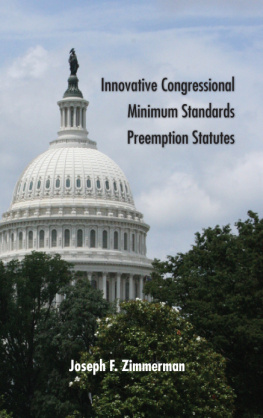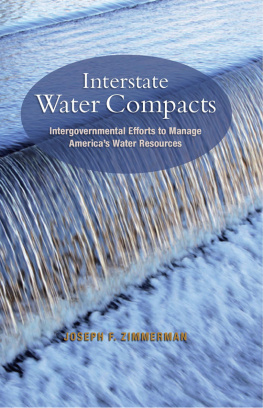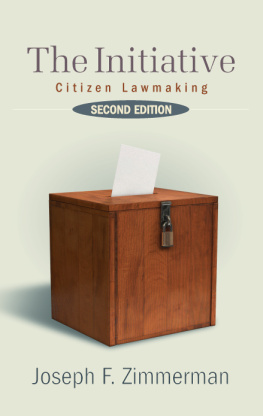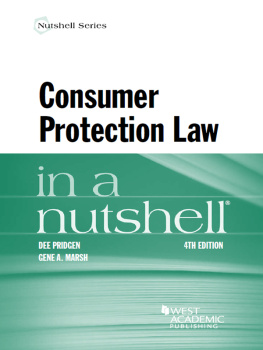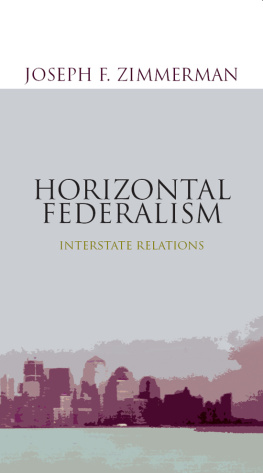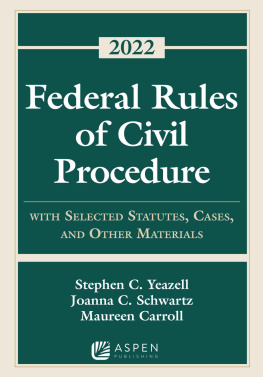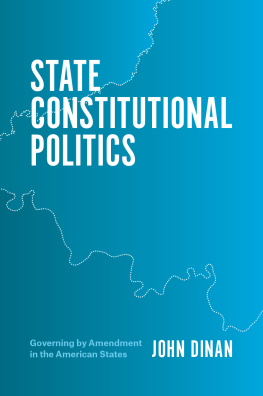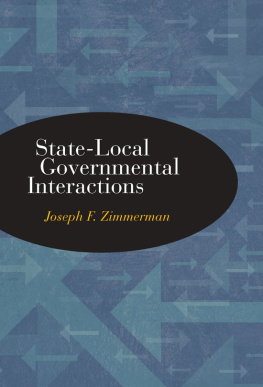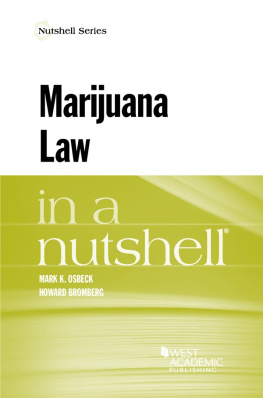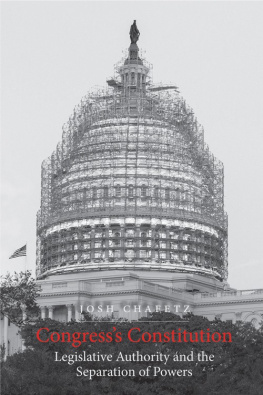Innovative Congressional
Minimum Standards
Preemption Statutes
Innovative Congressional
Minimum Standards
Preemption Statutes
JOSEPH F. ZIMMERMAN
Published by
S TATE U NIVERSITY OF N EW Y ORK P RESS , A LBANY
2016 State University of New York
All rights reserved
Printed in the United States of America
No part of this book may be used or reproduced in any manner whatsoever without written permission. No part of this book may be stored in a retrieval system or transmitted in any form or by any means including electronic, electrostatic, magnetic tape, mechanical, photocopying, recording, or otherwise without the prior permission in writing of the publisher.
For information, contact
State University of New York Press, Albany, NY
www.sunypress.edu
Production, Laurie D. Searl
Marketing, Michael Campochiaro
Library of Congress Cataloging-in-Publication Data
Names: Zimmerman, Joseph Francis, 1928 author.
Title: Innovative Congressional minimum standards preemption statutes / Joseph F. Zimmerman.
Description: Albany : State University of New York Press, 2016. | Includes bibliographical references and index.
Identifiers: LCCN 2015026351| ISBN 9781438460970 (hardcover : alk. paper) | ISBN 9781438460994 (e-book)
Subjects: LCSH: Exclusive and concurrent legislative powersUnited States. | Environmental lawUnited States.
Classification: LCC KF4600.Z565 2016 | DDC 342.73/042dc23
LC record available at http://lccn.loc.gov/2015026351
10 9 8 7 6 5 4 3 2 1
To Dahl Taylor, with many thanks!
Contents
Preface
Congress enacted the first two complete preemption statutes (Copy Right Act and Patent Act) in 1790 that removed subnational governmental regulatory powers in these two areas. Congress subsequently enacted preemption acts at a slow pace, and only twenty-nine preemption acts were enacted by the turn of the twentieth century. The pace of congressional enactment of preemption statutes remained slow until the pace increased, dramatically commencing in the 1960s. By 2015, a total of 704 preemption acts had been enacted with or without the support of a relatively large number of interests groups. A preemption act may contain a sunset clause establishing a specific date for the termination of the act. Subnational government leaders often criticize preemption acts, particularly ones containing mandates and/or restraints, and on occasion urge Congress to enact a preemption act because states have been unable to solve a public problem by means of cooperative interstate action. In addition, the entry of the United States into treaties with foreign nations may preempt certain regulatory powers of states completely or partially.
These acts have produced major changes in the nature of the federal system as Congress employed its preemption powers to remove regulatory authority completely, partially, or contingently from state governments and local governments. The framers of the U.S. Constitution designed the new governmental system to allow Congress to respond to changing conditions by delegating to it latent powers. The metamorphic system remains an imperium in imperio , with state governments continuing to exercise important regulatory powers. The system has not been converted into a unitary system; even more regulatory fields are the exclusive responsibility of Congress.
Preemption acts until 1965 were either complete preemption acts removing all regulatory powers from state and local governments or partial preemption acts occupying only part of a regulatory field. The Water Quality Act of 1965 is an innovative partial preemption act establishing minimum water quality standards, and authorizing each state to continue to regulate, provided the state adopts standards equal to or more stringent than the federal standards. A second innovative partial preemption statute is the contingent Voting Rights Act of 1965, providing that it applies to a state only if two conditions prevail in the state.
The reader should be aware Congress on occasion devolves one of its delegated powers to the states, and has done so since 1789, when states were authorized to regulate marine port pilots. The most important devolution statute is the McCarran-Ferguson Act of 1945, devolving regulatory authority to the states to regulate the insurance industry. This volume examines congressional turn-backs of authority to state attorneys generals and state-friendly congressional preemption statutes.
The pace of enactment of preemption acts has slowed dramatically since the Republican Party captured control of the U.S. House of Representatives in the 2010 general elections, while the Democrats controlled the presidency and the Senate. In all probability, Congress in the future will enact preemption statutes at a faster pace to cope with domestic and foreign problems.
A special debt of gratitude is owed to Barbara Mathews for her assistance in gathering data and information for inclusion in this volume.
Chapter 1
The Nature of Preemption
This volume builds upon my 2005 book titled Congressional Preemption: Regulatory Federalism , which presents a broad overview of congressional use of preemption powers since 1790 to remove completely or partially state regulatory powers in various fields such as bankruptcy, civil rights, gun control, occupational safety, and water quality. The book notes Congress, commencing in 1965, enacted the first of a new type of preemption statute that I label an innovative preemption statute. The book also briefly reviews this new preemption type in contrast to this book that is devoted primarily to various types of innovative preemption statutes and their relative success in achieving congressionally established goals. A review of constitutional developments will facilitate an understanding of the importance of innovative preemption statutes.
The U.S. Constitution established the worlds first federal system in 1789, an Imperium in Imperio (an empire within an empire), by dividing exercisable powers between the newly established general government and the thirteen state governments. The fundamental law delegates specific powers to Congress and other specific powers to the president, reserves all other powers with the exceptions of prohibited ones to the states, and allows states to exercise other specified powers with the consent of Congress. The powers delegated to Congress by the U.S. Constitution are latent ones that may be employed at will. The drafters of the fundamental law recognized the undesirability of a static distribution of political powers between the national government and the states, and included provisions for the amendment of the fundamental law and other provisions authorizing Congress to enact statutes removing completely or partially or contingently specific regulatory powers from the state governments.
The reserved powers include the English common law and equity that states continue to employ subsequent to the issuance of the Declaration of Independence in 1776. A most important component of the common law is the police power that is definable only in the broadest terms as the power of states to regulate persons and properties in order to protect and promote public health, safety, welfare, morals, and convenience. State and local governments were the principal regulators until well into the twentieth century, when Congress became a most important regulator and employed more frequently its constitutionally granted broad powers to remove completely or partially or contingently regulatory powers from states and by extension from local governments. The reader should note that not all preemption statutes contain an explicit preemption clause, and courts are called upon to determine whether a statute is preemptive.

